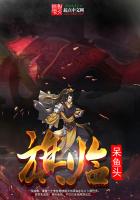'Here's his son's letter,'said one of the Sidlinch men.''Twas found in his father's pocket.You can see by the state o't how many times he read it over.Howsomever,the Lord's will be done,since it must,whether or no.'
The grave was filled up and levelled,no mound being shaped over it.
The Sidlinch men then bade the Chalk-Newton choir good-night,and departed with the cart in which they had brought the sergeant's body to the hill.When their tread had died away from the ear,and the wind swept over the isolated grave with its customary siffle of indifference,Lot Swanhills turned and spoke to old Richard Toller,the hautboy player.
''Tis hard upon a man,and he a wold sojer,to serve en so,Richard.
Not that the sergeant was ever in a battle bigger than would go into a half-acre paddock,that's true.Still,his soul ought to hae as good a chance as another man's,all the same,hey?'
Richard replied that he was quite of the same opinion.'What d'ye say to lifting up a carrel over his grave,as 'tis Christmas,and no hurry to begin down in parish,and 'twouldn't take up ten minutes,and not a soul up here to say us nay,or know anything about it?'
Lot nodded assent.'The man ought to hae his chances,'he repeated.
'Ye may as well spet upon his grave,for all the good we shall do en by what we lift up,now he's got so far,'said Notton,the clarionet man and professed sceptic of the choir.'But I'm agreed if the rest be.'
They thereupon placed themselves in a semicircle by the newly stirred earth,and roused the dull air with the well-known Number Sixteen of their collection,which Lot gave out as being the one he thought best suited to the occasion and the mood He comes'the pri'-soners to're-lease',In Sa'-tan's bon'-dage held'.
'Jown it--we've never played to a dead man afore,'said Ezra Cattstock,when,having concluded the last verse,they stood reflecting for a breath or two.'But it do seem more merciful than to go away and leave en,as they t'other fellers have done.'
'Now backalong to Newton,and by the time we get overright the pa'son's 'twill be half after twelve,'said the leader.
They had not,however,done more than gather up their instruments when the wind brought to their notice the noise of a vehicle rapidly driven up the same lane from Sidlinch which the gravediggers had lately retraced.To avoid being run over when moving on,they waited till the benighted traveller,whoever he might be,should pass them where they stood in the wider area of the Cross.
In half a minute the light of the lanterns fell upon a hired fly,drawn by a steaming and jaded horse.It reached the hand-post,when a voice from the inside cried,'Stop here!'The driver pulled rein.
The carriage door was opened from within,and there leapt out a private soldier in the uniform of some line regiment.He looked around,and was apparently surprised to see the musicians standing there.
'Have you buried a man here?'he asked.
'No.We bain't Sidlinch folk,thank God;we be Newton choir.Though a man is just buried here,that's true;and we've raised a carrel over the poor mortal's natomy.What--do my eyes see before me young Luke Holway,that went wi'his regiment to the East Indies,or do Isee his spirit straight from the battlefield?Be you the son that wrote the letter--'
'Don't--don't ask me.The funeral is over,then?'
'There wer no funeral,in a Christen manner of speaking.But's buried,sure enough.You must have met the men going back in the empty cart.''Like a dog in a ditch,and all through me!'He remained silent,looking at the grave,and they could not help pitying him.'My friends,'he said,'I understand better now.You have,I suppose,in neighbourly charity,sung peace to his soul?Ithank you,from my heart,for your kind pity.Yes;I am Sergeant Holway's miserable son--I'm the son who has brought about his father's death,as truly as if I had done it with my own hand!'
'No,no.Don't ye take on so,young man.He'd been naturally low for a good while,off and on,so we hear.'
'We were out in the East when I wrote to him.Everything had seemed to go wrong with me.Just after my letter had gone we were ordered home.That's how it is you see me here.As soon as we got into barracks at Casterbridge I heard o'this ...Damn me!I'll dare to follow my father,and make away with myself,too.It is the only thing left to do!''Don't ye be rash,Luke Holway,I say again;but try to make amends by your future life.And maybe your father will smile a smile down from heaven upon 'ee for 't.'
He shook his head.'I don't know about that!'he answered bitterly.
'Try and be worthy of your father at his best.'Tis not too late.'
'D'ye think not?I fancy it is!...Well,I'll turn it over.
Thank you for your good counsel.I'll live for one thing,at any rate.I'll move father's body to a decent Christian churchyard,if Ido it with my own hands.I can't save his life,but I can give him an honourable grave.He shan't lie in this accursed place!''Ay,as our pa'son says,'tis a barbarous custom they keep up at Sidlinch,and ought to be done away wi'.The man a'old soldier,too.You see,our pa'son is not like yours at Sidlinch.'
'He says it is barbarous,does he?So it is!'cried the soldier.
'Now hearken,my friends.'Then he proceeded to inquire if they would increase his indebtedness to them by undertaking the removal,privately,of the body of the suicide to the churchyard,not of Sidlinch,a parish he now hated,but of Chalk-Newton.He would give them all he possessed to do it.
Lot asked Ezra Cattstock what he thought of it.
Cattstock,the 'cello player,who was also the ***ton,demurred,and advised the young soldier to sound the rector about it first.'Mid be he would object,and yet 'a mid'nt.The pa'son o'Sidlinch is a hard man,I own ye,and 'a said if folk will kill theirselves in hot blood they must take the consequences.But ours don't think like that at all,and might allow it.''What's his name?'















